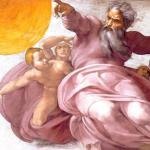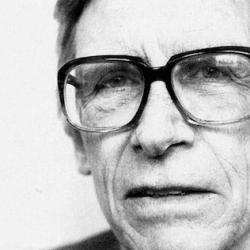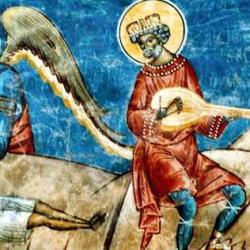In Theology and the First Theory of Sacrifice, Ivan Strenski recounts an epochal shift in the study of religion, and of sacrifice in particular, that took place in the France of the late 19th and early 20th centuries.
At the time, the “lions” of the field of religion were openly Christian liberal theologians: “They had achieved an enormous degree of prestige for themselves in higher education with their establishment of the national center of the study of religion in the university of Paris, the École Pratique des Hautes Études, Fifth Section. Its founding members, Albert Réville, Jean Réville, Auguste Sabatier and Maurice Vernes, were all Protestants of the liberal wing of that movement. They also moved in the international world of liberal Protestant scholarship in Europe and America, and were intellectually sustained and connected with their allies in neighboring Protestant countries like the Netherlands, where Cornelis P. Tiele held forth and England, where Friedrich Max Müller was in place. From its center in the Fifth Section, the French liberal Protestants dominated the study of religion in French higher education” (9).
These liberal theologians were “sincerely committed to reconciliation between science and religion, and did not think themselves to be making narrow confessional positions the standard for public discourse about religion. Rather, they felt that a universalist reference to religious values and beliefs might conform to the conditions of a secular society” (10).
The future, though, lay with their opponent, non-theological theorists of sacrifice like Durkheim, Mauss, and Henri Hubert. The theologians, they argued, couldn’t truly represent a scientific viewpoint: “liberal Protestant theological approaches to religion, with their inevitable appeals to the supernatural, had no right to represent their work as ‘scientific’ in any conventional sense of the term. On what grounds—other than theological ones—could one regard a flourishing ritual life in a society as a mark of intellectual, and in the case of sacrifice, moral, inferiority? How persuasive, for example, could talk about the supernatural efficacy of sacrifice be in the absence of an epistemological consensus supporting such talk?” (11).
What France needed was not theology but “a civil religion . . . informed by the religious history of the entire globe, and also without prejudice to those dissenting from ‘religion’ as well. Christians had to make room for Buddhists, Jews, Hindus and Muslims, as well as secular humanists and atheists as well. Christianity had to be ‘decentered’ from its historic place within the nation, lest the principle of public— rather than confessional or sectarian—discourse be violated, even if inadvertently” (12).
Strenski’s book recounts how these secular “foxes” challenged and displaced the theological “lions” of French religious studies.












